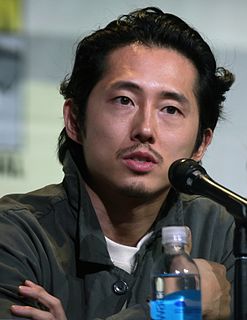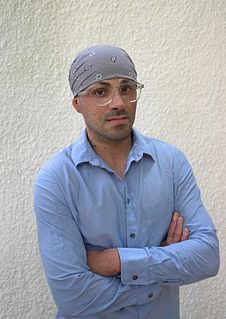A Quote by Robin Hobb
When we come back to fantasy, I think we're actually coming back to the real bedrock of storytelling. Our national or international genre really is fantasy, if you think about the worldwide myths and legends and stories that we all know, whether we're talking about Little Red Riding Hood or the Arabian Nights or Noah's Ark or Hercules. These are stories that cross many cultures in much the same way that dragons cross many cultures.
Quote Topics
About
Actually
Arabian
Arabian Nights
Ark
Back
Bedrock
Come
Coming
Coming Back
Cross
Cultures
Dragons
Fantasy
Genre
Hercules
Hood
International
Know
Legends
Little
Little Red Riding Hood
Many
Much
Myths
National
Nights
Noah
Noah's Ark
Our
Real
Really
Red
Red Riding Hood
Riding
Same
Stories
Storytelling
Talking
Think
Way
Whether
Worldwide
Related Quotes
Why are so many of us enspelled by myths and folk stories in this modern age? Why do we continue to tell the same old tales, over and over again? I think it's because these stories are not just fantasy. They're about real life. We've all encountered wicked wolves, found fairy godmothers, and faced trial by fire. We've all set off into unknown woods at one point in life or another. We've all had to learn to tell friend from foe and to be kind to crones by the side of the road. . . .
I really wish that peoplewould just say, 'Yes, it's a comic. Yes, this is fantasy. Yes, this is Science Fiction,' and defend the genre instead of saying, 'Horror is a bit passe so this is Dark Fantasy,' and that' s playing someone else's game. So that's why I say I'm a fantasy writer and to hell with 'It doesn't read like what I think of as a fantasy'. In that case what you think of as a fantasy is not a fantasy. Or there is more to it than you think.
Many people don’t realize the extent to which stories influence our behavior and even shape our culture. Think about how Bible stories teach the fundamentals of religion and rules of conduct. Think of the fables and parables that molded your values. Think of how stories about your national, cultural or family history have shaped your attitudes about yourself and others.
My real purpose in telling middle-school students stories was to practice telling stories. And I practiced on the greatest model of storytelling we've got, which is "The Iliad" and "The Odyssey." I told those stories many, many times. And the way I would justify it to the head teacher if he came in or to any parents who complained was, look, I'm telling these great stories because they're part of our cultural heritage. I did believe that.
I know a lot of people who say, "I reluctantly watched the first episode because I don't really like zombies and that stuff, but I was pleasantly surprised by the characters and the drama of it all." I think that's what keeps people coming back and brings new watchers to the show. What the show does is cross many, many different viewerships.
I think there's a general confusion that my work is about types of photography. But really that's just a tool to introduce some questions I have about seeing. What happens when all of these conditions and structures and histories and cultures and tools you have around you begin to fail? On the one hand there is an engagement with histories and cultures, and on the other, there is this very lonesome space of actually coming to terms with seeing.
But it's hard for me to pinpoint where all my characters and dialogue come from - imagination or real life. My memoir, of course, was all about my past, and many of the short stories cleave very closely to my life, but the more stories I wrote in the collection, the more that seemed to be invented, but who knows... I think I'm writing about a young woman with acne who shoplifts, but I'm really writing about myself.
These are the moments. These are the moments where you realize love is everywhere if you look closely. When you realize happiness isn't next weekend, and it's not last week, it's right now. That was one of the best nights of my life. It felt good to know purpose. I lay in my bunk and I think of all the stories I'm in. I think about all the stories that are in my story. I think about all the stories that are left to be written. And it might be my favorite book yet.






































